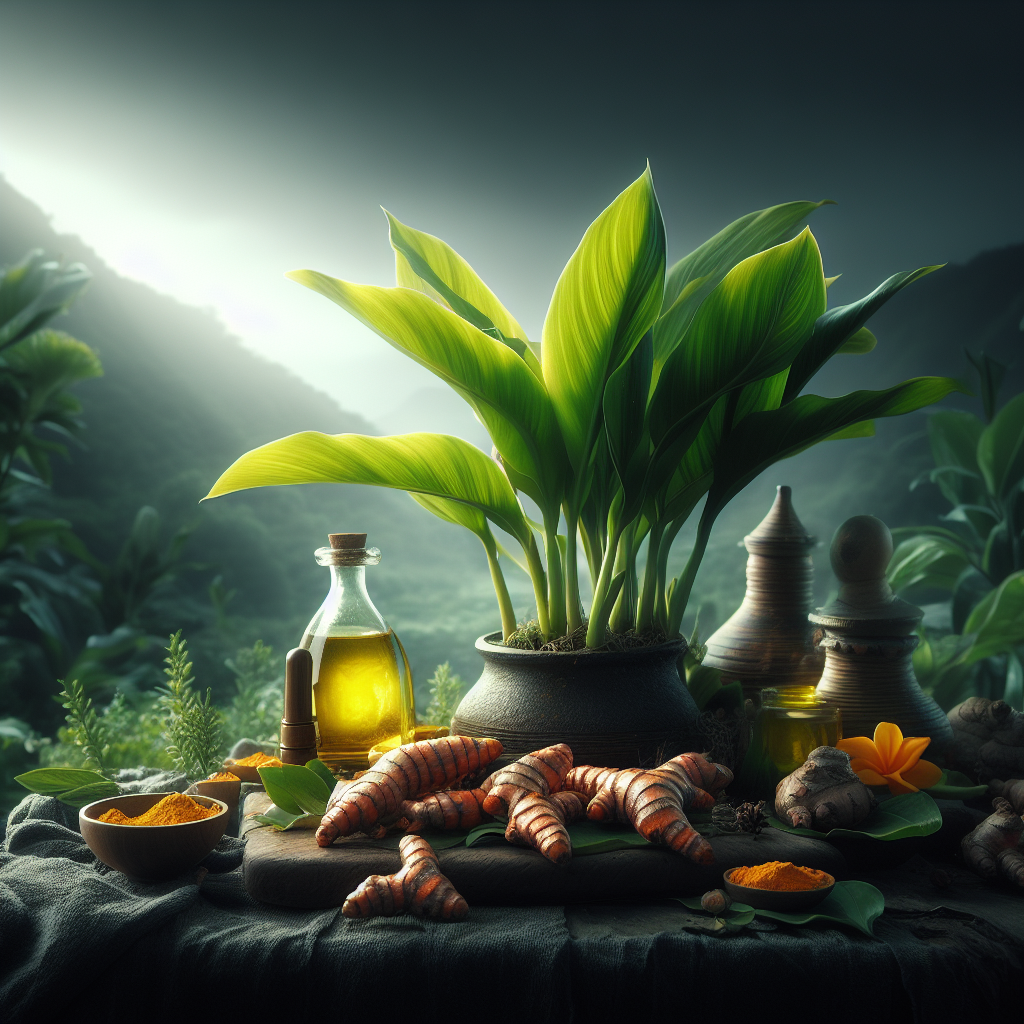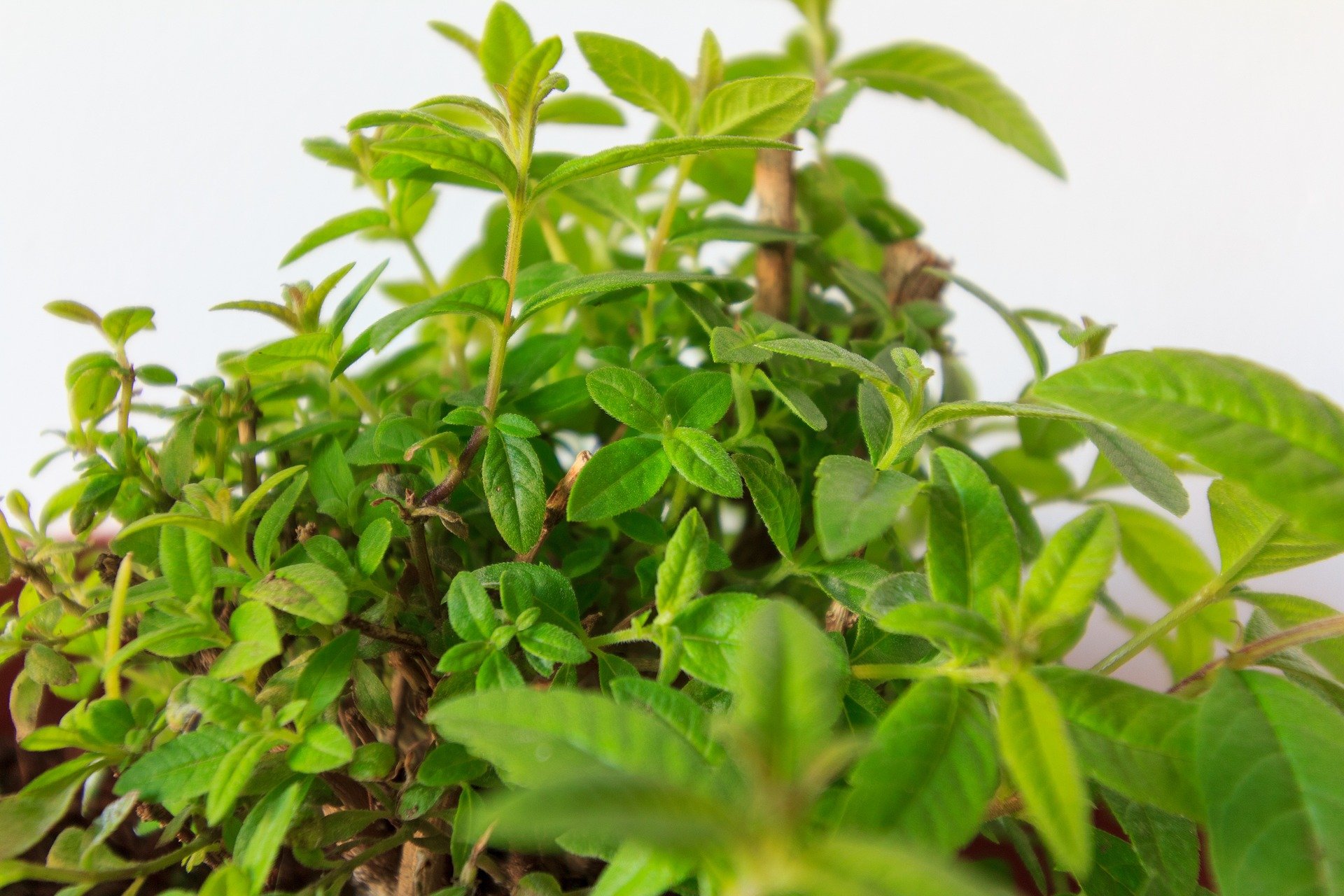20 Plants for Medicinal Herb Gardens
If you're interested in living a healthier lifestyle these days, you're not alone. More and more people are turning to natural remedies to support their well-being.
In this article, we'll talk about some of the best medicinal herbs to grow at home and give you tips on how to care for them.
Medicinal Herbs
1. Lavender (Lavandula angustifolia)
Beyond its classic floral-herbal fragrance, lavender has been know to soothe headaches and reduce anxiety.
Dried buds brew into teas that relax tense muscles when sipped before bedtime.
For skin health, antiseptic and anti-inflammatory lavender infusions treat acne and eczema flareups. Sachets tucked into closets and drawers repel moths.
As a hearty perennial, lavender thrives in sunshine with well-drained soil and adequate airflow.
2. Peppermint (Mentha x piperita)
With its instantly recognizable crisp, minty aroma, peppermint is a staple for soothing digestion woes. The menthol in peppermint leaves alleviates headaches, nausea, indigestion and stomach cramps with its mild anesthetic effect.
In skin care, cooling peppermint cleansers, toners, and lotions refresh oily complexions.
As a fast spreading plant, you may want to contain peppermint in pots. It will take over a garden in no time.
It favors well-drained soil and can tolerate partial shade.
3. Aloe Vera (Aloe barbadensis miller)
Aloe vera is great for healing sunburn, minor burns, cuts, scrapes and irritated skin. Just split those plump spiky leaves to access its healing gel within. This clear gel contains enzymes like bradykinase that reduce inflammation and pain on contact.
It also seals in moisture, stimulating quicker cell regeneration.
Aloe thrives in bright, indirect light and is perfect for windowsills and outdoor containers. The more you harvest leaves, the more this succulent produces. It's like a first aid kit and houseplant in one!
Preferring bright, indirect light, aloe vera is perfect for windowsills and outdoor containers. Its succulent nature thrives in well-drained soil.
4. Purple Coneflower (Echinacea purpurea)
This vibrant daisy is valued for its ability to help prevent and ease cold symptoms.
The roots, leaves, and cone-shaped flowers contain special compounds that stimulate the immune system and have natural antiviral effects against pesky viruses that cause colds and flu.
Sipping echinacea tea at the first sign of a scratchy throat can help halt the illness in its tracks. It also makes a beautiful, pollinator-friendly addition to gardens with its pink-purple hued blooms.
This vibrant daisy thrives in well-drained soil and appreciates ample sunlight, but can tolerate partial shade.
5. Chamomile (Matricaria chamomilla)
With tiny white flowers reminiscent of daisies, chamomile has long been the herb of choice for promoting tranquility and gentle healing.
The dried flowers can be steeped into a fruity, floral tea that eases nervous tension and upset stomachs thanks to natural sedative compounds like apigenin.
As a bonus, chamomile tea doubles as a soothing skin cleanser and compress. Prepare some smooth chamomile lotion to calm eczema flareups.
This hardy perennial thrives in cool conditions and makes an ideal groundcover companion plant.
6. Calendula (Calendula officinalis)
Calendula petals and leaves are antimicrobial, reducing inflammation and redness when applied to minor cuts, burns, scrapes.
An infused calendula oil works beautifully in DIY skin salves, lotions, ointments. Tinctures can also be used to help heal internal issues like stomach ulcers.
Give this pretty annual a spot in herb gardens with well draining soil and plenty of sun, or grow it in containers for easy access.
7. Rosemary (Rosmarinus officinalis)
Rosemary, with its needle-like leaves and aromatic essence, not only adds a burst of flavor to your culinary creations but also boasts impressive health benefits.
Rich in antioxidants, rosemary supports digestive health and memory function.
The herb can be infused into oils for skincare, providing both a delightful fragrance and natural nourishment.
Rosemary thrives in well-drained soil and full sun, making it an excellent choice for sunny spots in your garden.
8. Turmeric (Curcuma longa)
Known for its vibrant golden hue and earthy flavor, turmeric contains curcumin, a compound celebrated for its anti-inflammatory properties.
Beyond adding depth to dishes, turmeric supports digestion, eases arthritis symptoms, and contributes to overall well-being.
Cultivate turmeric in well-drained soil and give it plenty of sunlight to maximize its health benefits.
9. Sweet Basil (Ocimum basilicum):
Full of with anti-inflammatory compounds and rich in antioxidants, basil aids in reducing inflammation and combating oxidative stress.
With antibacterial properties supporting the immune system, potential respiratory benefits, and a role as a digestive aid, sweet basil, easy to grow and versatile, proves a flavorful and health-enhancing addition to both culinary dishes and herbal teas, making it a valuable asset in your medicinal garden.
Basil flourishes in well-drained soil and enjoys plenty of sunlight.
10. Lemon Balm (Melissa officinalis)
With its lemony scent and calming properties, lemon balm is a soothing herb that aids in stress relief and promotes restful sleep. Often used in teas, this herb helps alleviate anxiety and indigestion. Lemon balm, thriving in partial shade with well-drained soil, is not only beneficial for health but also a delightful addition to your garden.
Lemon balm thrives in full sun to partial shade and well-drained soil.
It can be another aggressive spreader so it may be best to grow it in a container.
11. Thyme (Thymus vulgaris)
Thyme, a versatile culinary herb, goes beyond adding flavor to your dishes. Rich in antimicrobial properties and antioxidants, thyme supports respiratory health and helps alleviate coughs and congestion.
This easy-to-grow herb flourishes in full sunlight, making it a valuable addition to your medicinal garden.
12. Sage (Salvia officinalis)
Sage, known for its savory flavor, boasts antimicrobial and anti-inflammatory properties. Beyond its culinary use, sage is utilized to soothe sore throats, manage menopausal symptoms, and enhance cognitive function.
A resilient herb, sage prefers well-drained soil and lots of sun for optimal growth.
13. Fennel (Foeniculum vulgare)
As both a culinary delight and a medicinal herb, fennel aids digestion, reduces bloating, and supports respiratory health. The aromatic seeds can be brewed into a digestive tea, offering a flavorful remedy.
Fennel, thriving in well-drained soil and full sunlight, is a versatile addition to your garden.
14. Ginger (Zingiber officinale)
Widely celebrated for its zesty flavor and anti-nausea properties, ginger is a versatile herb with anti-inflammatory benefits. Whether used in teas, infused oils, or culinary dishes, ginger adds a spicy kick to your wellness routine.
Ensure moist, well-drained soil for ginger plants to flourish.
15. Valerian (Valeriana officinalis)
Valerian, known for its calming effects, is a go-to herb for improving sleep quality. Whether enjoyed in teas or tinctures, valerian root provides a natural remedy for relaxation.
Cultivate valerian in moist, loamy soil and partial shade to maximize its soothing benefits.
16. Nettle (Urtica dioica)
Despite its initial sting, nettle is a nutrient-rich herb with anti-inflammatory properties. Utilized to alleviate allergies, arthritis, and support overall health, nettle can be brewed into teas or incorporated into various dishes.
Nettle thrives in rich, moist soil.
17. Comfrey (Symphytum officinale)
Comfrey, recognized for its healing properties, particularly for skin ailments and bone health, is a versatile herb. Whether used topically in salves or as a compost activator in the garden, comfrey is a valuable addition.
Ensure well-drained soil for successful cultivation.
18. Lemon Verbena (Aloysia citrodora)
With its delightful lemon fragrance, lemon verbena is more than a sensory delight; it's an herb that promotes calming teas and infusions. Rich in antioxidants, lemon verbena supports digestion and adds a refreshing touch to your garden.
Cultivate lemon verbena in well-drained soil and full sunlight for optimal results.
19. Marshmallow (Althaea officinalis)
Marshmallow root, soothing to the respiratory and digestive systems, is a herb utilized in teas or tinctures to alleviate coughs and promote overall well-being.
Marshmallow plants prefer moist soil, making them a valuable addition to your medicinal garden.
20. Catnip (Nepeta cataria)
Catnip, known for its mild sedative properties, extends its calming effects beyond feline friends. Used in teas or as a tincture, catnip provides relaxation and stress relief.
With adaptability to various soil types and sunlight conditions, catnip is a versatile herb for your garden.
Nurturing Your Garden: Tips for Success
Sunlight and Soil:
Ensure your medicinal herbs receive adequate sunlight, as most of these plants thrive in well-lit conditions. Additionally, well-draining soil is essential for preventing root rot and other issues.
Watering:
Strike a balance with watering – these plants generally prefer moderate moisture. Overwatering can lead to root problems, so allow the soil to dry slightly between waterings.
Companion Planting:
Companion planting can enhance the growth and vitality of your medicinal herb garden. For instance, planting chamomile near other herbs can promote their overall well-being.
Harvesting Techniques:
Harvest regularly to ensure a continuous supply of fresh herbs; first thing in the morning is best, when essential oils are at their peak concentration for maximum potency.
Natural Pest Control:
Explore natural pest control methods to keep your garden thriving without the use of harmful chemicals. Companion plants like marigolds can help deter pests while attracting beneficial insects.
RELATED ARTICLE: A SUSTAINABLE APPROACH TO PEST CONTROL
Start Your Healing Garden Today
Growing medicinal herbs aligns perfectly with the movement toward natural wellness and holistic healing.
Even a small garden patch or container garden on your balcony can overflow with soothing remedies that calm, restore and nourish from head to toe.
While medicinal plants offer immense healing gifts, the act of nurturing them also heals the mind and soul. Tending to seedlings, enjoying nature’s aromas and flavors, witnessing each stage of the plant lifecycle - all of these experiences reduce stress while connecting you to the earth.
So let lavender, peppermint, aloe vera and other botanical friends infuse your life with wellness inside and out. Embrace both the power of plants and gardening as you grow your own mini apothecary at home.
Whenever life’s challenges arise, step outside into your sanctuary of flowers and foliage. Harvest some herbs for a soothing cup of tea or skin-soothing salve as you take in the invigorating aromas. Happy gardening!
You may also like: Why is Gardening So Therapeutic?





















